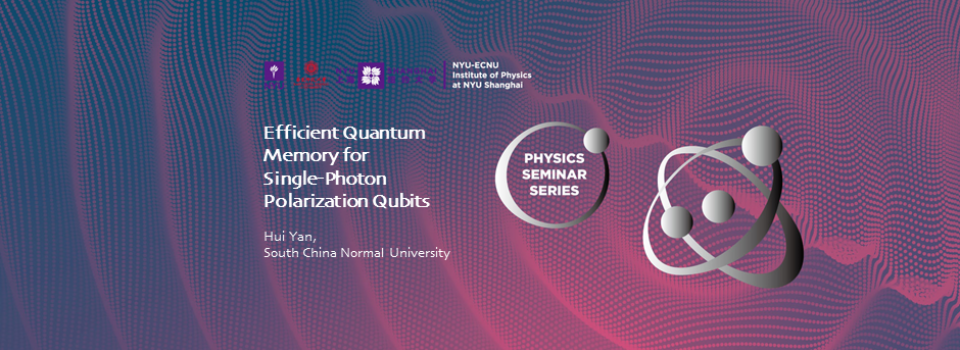
Abstract:
A quantum memory, for storing and retrieving flying photonic quantum states, is a key interface for realizing long-distance quantum communication and large-scale quantum computation. However, the low memory efficiency for quantum information effectively slowing down its practical application. And hence, improving quantum memory efficiency has been a chronicle problem. In this talk, I will report our recent result about EIT-based highly efficient quantum memory. By overcoming technical imperfections of the system, e.g. Optical Depth, noise effect, atomic dephasing and optimal memory waveform, we achieved a quantum memory for single-photon polarization qubits with an efficiency of 85% and a fidelity of >99%. For single-photon temporal waveform, we got an optimized memory efficiency >90%. This result makes it usable for incorporating into many quantum information protocols.
Biography:
Hui Yan, Professor and PhD Supervisor, Vice Dean of the Department of Physics and Telecommunication Engineering at South China Normal University. His research interests focus on cold atoms, spanning over three specific fields: 1. Quantum computation and quantum simulation; 2. Quantum networks and quantum memory; 3. Quantum precision measurement. Professor Yan has published 42 SCI papers, including one in Nature Photonics, one in Nature Communications, and five in Phys. Rev. Lett.. Several of his researches have received great attention and recognition, for example, Nature Photonics’ Cover Article (2019), PRL Editor’s Suggestions (2018), China’s Important Optical Breakthroughs (2016), Research News in Science News (2015) and Research highlights in Nature Photonics (2014).
Seminar by the NYU-ECNU Institute of Physics at NYU Shanghai


